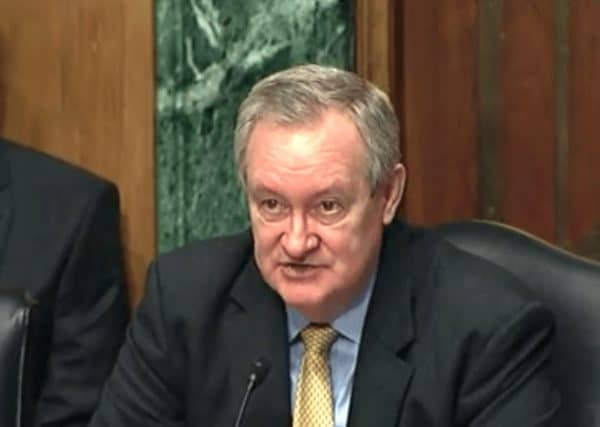
Jeremy Allaire, CEO and co-founder of Circle and representative of the Blockchain Association, will testify in front of the US Senate Banking Committee tomorrow beginning at 10 AM ET. Allaire, the only crypto industry executive to testify, will have his work cut out for him following the Libra/Facebook hearings from earlier this month.
During the Libra hearing, Senators on the Committee questioned Facebook’s strategy as well as its ability to act in the best interests of users. The atmosphere during the Senate hearing ranged from lukewarm support to outright hostility. Allaire may have it easier as he has nothing to do with the much-maligned Facebook project but we will find out more tomorrow.
Today, Crowdfund Insider has reviewed the prepared testimony (embedded below) from Allaire. Typically, a hearing witness will present live an abbreviated version of the Testimony and submit a more extensive, prepared version for the public record.
Allaire explains that his vision is for digital currency and related tech to transform the global financial system to make it easier for individuals everywhere to create and exchange value. This is accomplished by removing friction, eliminating middlemen and lowering costs to each party engaged in a transaction.
“Today, Circle is one of the leading crypto companies in the world, providing regulated products and services to millions of people who use our products to exchange value, trade, invest, and store digital assets,” claims Allaire. “In the next several years, the adoption of digital currency technologies and blockchains will accelerate, begin to help hundreds of millions if not billions of people, and transform the economies of the countries that participate in the innovation.”
Allaire says the existing, traditional financial system is riddled with crime and money laundering. Approximately 99% of money laundering goes undetected. Meanwhile, access to capital is constrained in the US as well as globally. Crypto, or blockchain technology, can mitigate both of these challenges if it develops responsibly.
Allaire explains that digital assets and blockchains are a “technical and economic response to what is broadly felt to be a financial system that is rigged against the everyday person.”
Tokenization can enable businesses to create digital assets that can provide utility to users, be sold and used in ways to raise capital, and serve as a means of payment. All in a regulated and transparent environment.

Circle is NOT Facebook, and Their Stablecoin is Backed by US Dollars
Regarding Circle’s stablecoin, USDC, Allaire points to why it is different from Libra.
While Libra aspires to be its own sovereign currency – thus challenging existing fiat currency and putting national currencies at risk – USDC is pegged to the US dollar.
Allaire says he is deeply engaged with policy and regulation that impacts his industry:
“Circle itself has embraced a regulated approach to crypto, with money transmission licenses from 48 states, the first New York BitLicense, the first Electronic Money Issuer (EMI) license for a crypto company in the UK and EU, and one of the first FINRA-regulated broker-dealers operated by a crypto company. We have devoted significant time over the past 6 years to engaging constructively with financial regulators and policymakers all around the world.”
Circle wants to provide a compliant path for blockchain innovation and digital asset creation.
But while innovation is accelerating in certain jurisdictions outside the US, Allaire fears that the current regulatory path in the US will stymie innovation in the blockchain sector. Countries like Switzerland, Malta, and Singapore have established more flexible laws. France has created bespoke legislation to encourage digital asset offerings which are not deemed to be securities yet may trade on secondary markets.
Allaire highlights specifically Bermuda’s Digital Asset Business Act – legislation that helped to convince Circle to move a portion of its business to the offshore jurisdiction.
“In the United States, regulatory uncertainty and the application of laws that do not contemplate digital assets has led to the loss of significant opportunity for US crypto companies, and ultimately for consumers, businesses, and the national economy as a whole,” states Allaire. “The Securities and Exchange Commission, for example, is forced to apply federal laws written in the 20th century to technologies created in the 21st.”
Without a forward-looking, light-touch policy approach, the US is poised to fall behind, according to Allaire.
The “patchwork” of federal and state regulation is a serious impediment to blockchain innovation (as well as all Fintech entrepreneurship). Having a single regulator of record would be a godsend to new finance, as well as more traditional financial services firms.
You may watch the entire proceedings tomorrow on the US Senate Banking Committee website.

